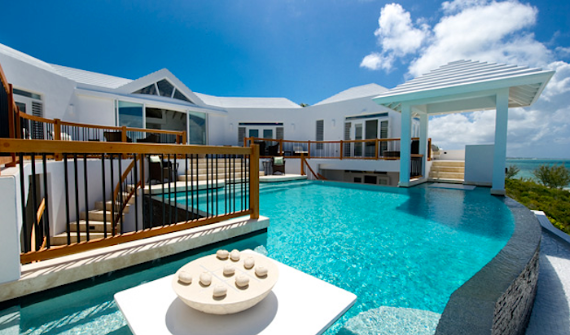What Goes Into A House Payment?
Hello! If you’re reading this, there is a good chance you are interested in owning your own home. Owning a home is one of the most rewarding experiences there is and a worthy goal to aspire to. If you are currently renting or living with someone else, you may find yourself in a situation where you would like to buy a home, but don’t know exactly what kinds of costs are associated with that.
Well look no further.
I’m going to break down what costs go into your house payment, what to expect when you own a home, and how to limit those costs to make your home as affordable as possible. Take heart! It’s not nearly as complicated as you make think.
Before we begin, let me just say that while I’m going to cover all the costs associated with owning most homes, you aren’t required to actually pay them all in one payment. While many people choose to do it this way just to keep it simple, you can still elect to pay each of these costs independent of one another. For the purposes of this article I’m still going to detail each cost to give you the best idea of what to expect.
The Mortgage Payment
Far and away, the most commonly known expense in buying a home is the mortgage payment. In fact, many people refer to the total costs associated with the house payment as a “mortgage”. While this is common, it’s not entirely accurate. The mortgage actually only refers to the money you repay the bank for the loan they give you to buy the house.
Mortgages are made up of two parts-the principal and the interest. The principal payment is the amount of your payment that goes towards paying down your loan balance. The interest portion is the part the bank gets to keep for giving you the loan.
The majority of mortgage payments are “amortized”. This means that a portion of the payment goes to the principal and another to the interest. The majority of home loans are set up so that the majority of the payment goes towards the interest, and a smaller part goes towards the principal. As the loan is continually paid down over time, a larger and larger percentage of the payment goes towards the principal.
Home loans come in many different sizes, the most common being the 30 year repayment period. While this is the most common, it is not the only option. You can elect for 25, 20, 15, or even 10 year repayment periods.
As the repayment period becomes smaller, the the payment gets higher. However, the amount of the loan that goes towards the principal gets significantly higher as the loan period gets smaller. Many financial advisors recommend you get a shorter repayment period with a higher payment but much less money paid in interest over the years.
Property Taxes
The next significant cost you need to be aware of is the property tax. Property taxes are collected on a semi annual basis and are used to pay for many services like schools, roads, infrastructure, police, fire, and medical services. In California, there is a limit to how much the state can charge for property taxes (can’t be above 1% of the properties value a year). Even with this being the case, many municipalities include extra taxes to pay for community benefits. These extra taxes can be referred to as Mello Roos (taxes used to pay for schools), assessments (fees collected to repay monies borrowed for improvements) or bond measures (fees collected for community improvements like extra city employees, parks, or street improvements).
Most mortgage companies allow you to pay 1/12th of your property taxes every month along with your mortgage payment. If you elect for this option (often called an impound account), the mortgage company will pay your taxes for you twice a year with the money they collect from you. This is better for the mortgage company because it ensures you don’t fall behind on your property tax bill (if you owe money in taxes and the bank has to foreclose they have to pay those taxes before they can take any money for themselves). It is better for you because you aren’t as likely to get caught surprised by a tax bill you didn’t plan for.
Property taxes are based off of the county tax assessor’s assessment of the value of your property. They are typically decided by the purchase price of your home and every so often may be re-evaluated by the county. A lower priced home will typically have lower property taxes.
Homeowners Insurance
Your homeowner’s insurance is what covers you in the case your home burns to the ground in a fire. Most homeowner’s insurance also covers things like protection if you are sued by someone who was a guest in your home, or suffer water damage from rain or a leak.
Each policy is different and you’ll have to decide which coverages you’ll want. Some policies include flood coverage, earthquake coverage, and the natural disasters. Others include very little. Some coverage comes with a discount if you include your automobile insurance, others do not.
In general, most polices range in price from $50-$150 a month. If you would like to keep your expenses low, you can elect to have a higher deductible that will lead to a lower yearly premium. For most people, I recommend having this higher deductible and lower premium.
Just like property taxes, most mortgage companies will allow you to pay 1/12th of your insurance premium each month with your mortgage payment. If you elect for this option (the impound account), the mortgage company will pay your insurance for you each year when the premium is do. This is better for the mortgage company as they can ensure if your house (and their investment) burns down, there will be coverage to pay for it. It is better for you in the sense that you won’t have a lapse in coverage if you forget about your payment or don’t budget for it.
HOA dues
HOA’s, or Home Owners Association dues, are dues paid to belong to a home owners association. While some homes (often newer homes) have these, many others do not. HOA’s are put in place to ensure the home owners in the area keep their properties up to date and don’t do anything that would detract from the value of surrounding homes. Common HOA rules dictate the color you may paint your home, the landscaping you may have, where people can and cannot park, what improvements can be made, and what areas of the community can be used for which purposes.
Some HOA’s come with amenities such as a staffed security guard, a pool, gym, golf course, playground, or landscaped parks/lakes. Other HOA’s do not provide amenities but just enforce the codes. HOA dues can range from around $75-$800 a month, depending on the area you live in. If you buy a property in an HOA, understand you will have to pay the monthly dues as well as pay any fines you are assessed for violation the terms of the HOA.
Mortgage Insurance
Mortgage insurance (often called PMI-Private Mortgage Insurance or MIP-Mortgage Insurance Premium) is a cost tacked on to your mortgage by the company giving you the loan. Typically assessed if you put less than 20% down, PMI is a fee you pay to make up for the increased risk the bank is taking when they give you a home loan and you are putting less money down.
On most loans, the PMI goes away once you owe 80% of what your house is worth. This can happen when the value of your home increases, you pay down the home loan, or a combination of the two. Not every loan has PMI, but if you are putting less money down, expect to have to pay some. Most PMI payments are a few hundred dollars a month. The closer you are to putting down 80%, the cheaper the PMI typically is.
Maintenance/Repairs
As a renter, you are usually responsible for the rent and utilities. As a home owner, you are responsible for much, much more. Ever wonder why rents keep going up every year? It’s because the landlord has to pay for all the repairs that come from you living in their house.
As a home owner, you need to pay for all of these yourself.
It’s important to budget for things like replacing appliances, water heaters, HVAC, paint, carpet, ceiling fans, fire/smoke detectors, sprinkler systems, and a host of other things you are responsible for paying as a home owner. While these are not part of your monthly payment, they ARE still important for you to account for.
In Summary
To sum it all up, your main expenses every month are going to be your:
Mortgage
Property taxes
Home owners association
HOA dues (when applicable)
PMI (when applicable)
If you would like any more information regarding how to calculate these expenses, please email me for more information.
I can be reached at DavidGreene@kw.com or via www.DavidGreene24.com
Hope this helped bring some clarity towards what to expect, please let me know if I can be of any help!













